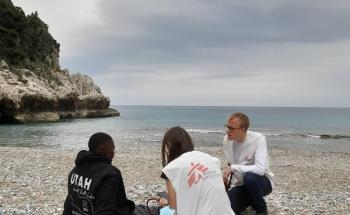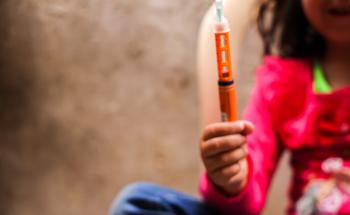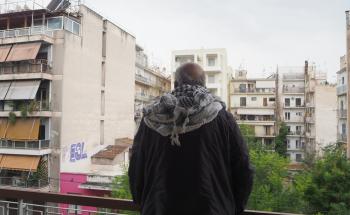The air shimmers in the early morning Athenian heat. A slight figure moves towards us, walking slowly along the high sunbaked walls surrounding Schisto, the refugee camp on the outskirts of the Greek capital. Schisto has been Anis and his family’s home since they arrived as refugees from Syria, seeking asylum in Europe. As Anis comes in to focus, he looks much older than his 51 years. That’s understandable, given his journey to get here from war-torn Syria. But Anis carries an additional burden, as he was diagnosed with diabetes on his journey and had to follow a strict routine of medicines, including insulin injections every day, to stay alive and healthy. Diabetes is a complicated disease to manage, and during his journey to Greece, Anis encountered several challenges with access to diabetes treatment. Now, in Greece, he is finally getting his insulin in a pen, which makes his treatment more straightforward and safer. We asked Anis to share his story.
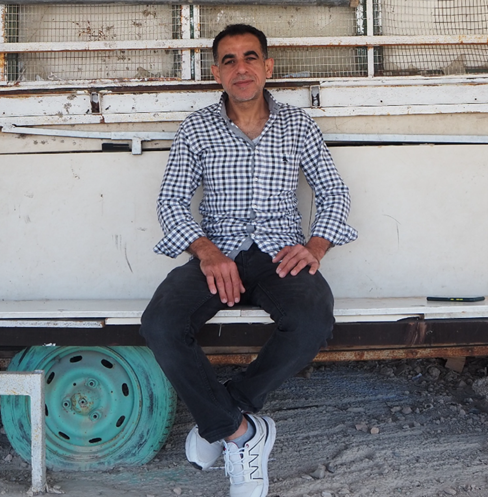
I was forced to leave Syria and lost everything I owned in the war. We were under siege, and we did not have any food. I had a newborn baby. So, we decided to leave Syria and faced many difficulties before we could get to Turkey. We finally arrived in Mersin (on the southern coast of Turkey), and since we had no more money, we stayed on there.
When we first arrived, we had to sleep in gardens, as we had nowhere to stay, and to ask friends to help us. Over time, we met people who helped us secure shelter. Then, finally, we started working, and I was able to rent a house and begin a new chapter. Unfortunately, after a short time, the landlord threw us out with our belongings and onto the street. That’s the time that I started developing symptoms. The feeling was indescribable, a feeling of deep fatigue and sadness.
I felt body tremors, and my weight began to decrease sharply.
I went to a doctor who told me I had to take insulin immediately because my blood sugar level was very high. So, I bought some insulin and started injecting it. After that, I consulted another doctor, who told me I needed a device to measure blood sugar and that I should take my insulin doses based on that. I suffered a lot. Any disease that affects the body is very difficult initially, and one starts to adapt over time.
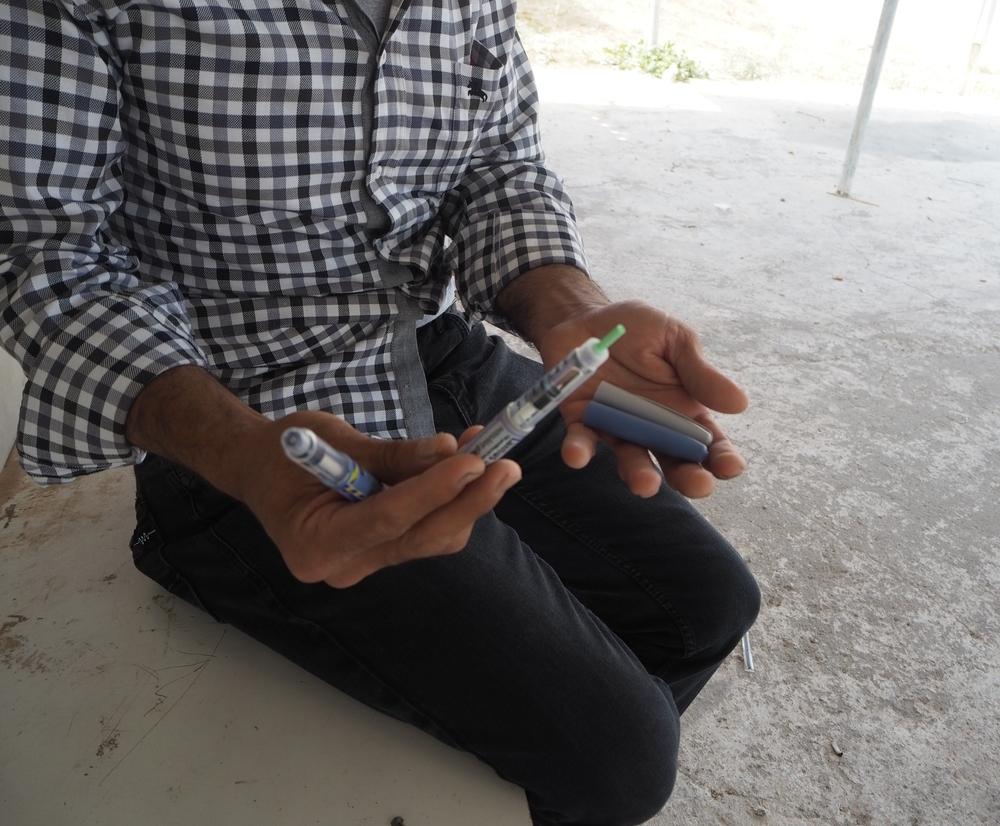
I injected insulin three times a day. Sometimes, the blood sugar level would get very high, reaching up to 500, due to the lack of accuracy in the doses I was injecting and the stress I was under. My financial situation did not allow me to eat regular meals (as I should) either. I felt pain in all my bones and every part of my body.
Unfortunately, when circumstances are difficult, one cling to any hope or opportunity for change, so we finally decided to leave, travel through Turkey and try to get to Greece.
I went without insulin for three days during this part of my journey, and I did not eat for fear of increasing my sugar levels. I did not think much about the illness or insulin when I saw the sea. All I thought about was to save myself and my family. At the moment when I was on the sea, and saw death with my own eyes, I did not think about the insulin either. But I thought about it soon after we arrived.
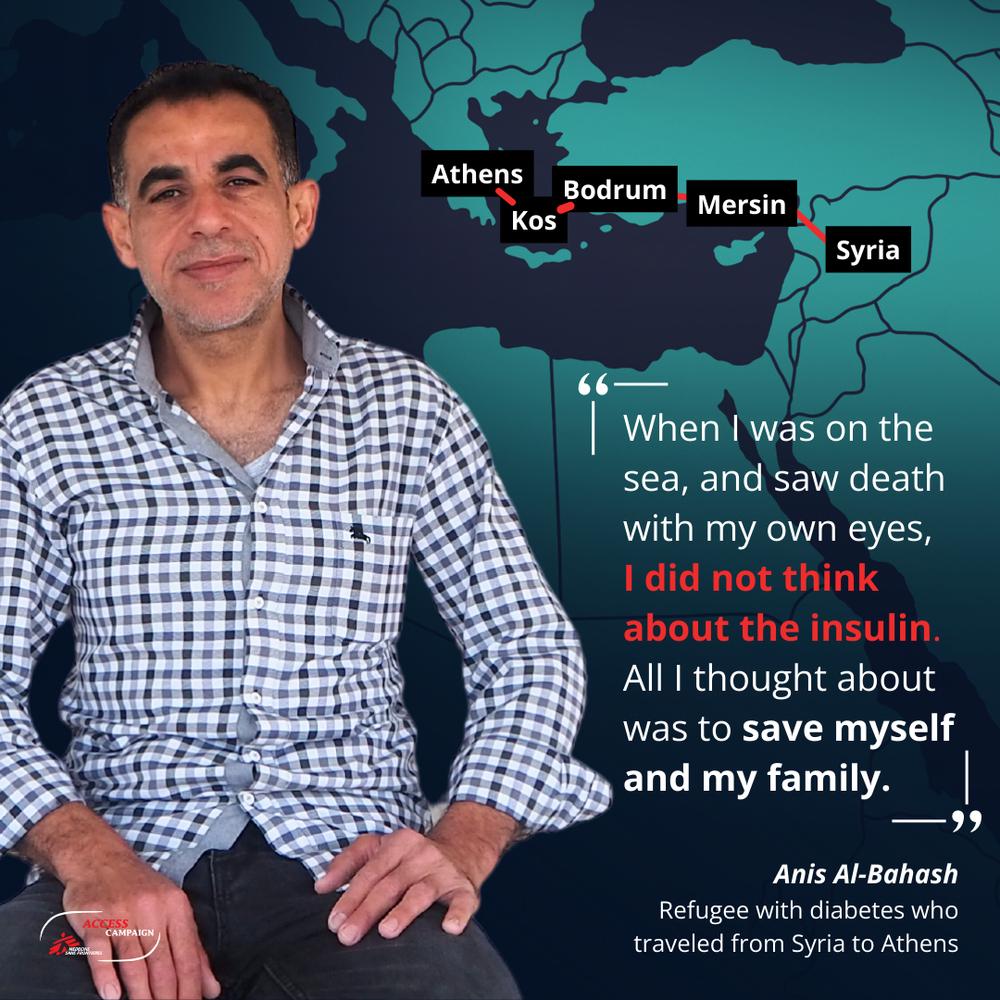
When we arrived safely in Greece (the island of Kos), I started feeling tired. Someone asked me what was wrong, and I told him I needed insulin. So, the people who were with me on the same boat collected money to buy me insulin. We surrendered ourselves to the authorities, who transferred me to a doctor who confirmed my medical condition and provided me with insulin.
When we got to Athens, I was transferred to this camp.
At the camp, they also asked about my illness and the type of medications I had. I had one remaining injection of insulin left. So, they made appointments for me at the public hospital and provided me with insulin.
The Greek authorities turned down my asylum application, which meant I lost the right to access health care in the Greek health system. All my medical procedures were stopped. Insulin was stopped, and I was desperately in need of it.
On that same day, I met someone from MSF at the camp, but I didn’t know they were present. MSF supported me and gave me the insulin – in pens – that I needed.
For someone with diabetes who uses insulin, a pen is necessary. The pen is definitely easier.
I don’t know what to do. I live day by day and do not know what will happen tomorrow. This illness has affected all of our family greatly. There has been constant suffering.

